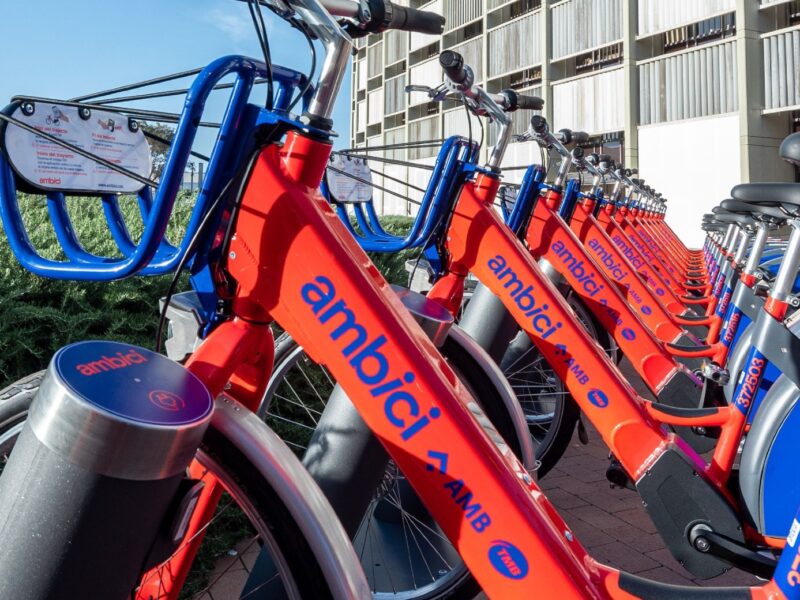MOBILITY
Low carbon transport plans in cruise destinations: Ravenna, Italy

As part of the LOCATIONS project, Low Carbon Transport Plans (LCTPs) support local public administrations in designing sustainable mobility solutions for cruise-related passengers and freight flows to preserve natural and cultural resources.
Challenges addressed
- Traffic congestions during the touristic season.
- Lack of general vision among the different strategies.
- Excessive use of private cars and buses.
- Disconnection between the port and general city mobility.
Main objectives
LCTPs contribute to the ultimate goal of reducing the environmental footprint of the urban traffic generated by cruise ships (passengers, crew and logistics).
Facts
Project type Urban mobility
Promoter LOCATIONS Project
Collaborators Durres, Zadar, Rijeka, Trieste, Ravenna , Malaga and Lisbon.
Start date 2018
Funding Interreg-MED
Website LOCATIONS
FINAL LCTP OF ZADAR_SYNTHETIC VERSION IN ENGLISH LANGUAGE
FINAL LCTP OF LISBON_SYNTHETIC VERSION IN ENGLISH LANGUAGE
FINAL LCTP OF TRIESTE_SYNTHETIC VERSION IN ENGLISH LANGUAGE
FINAL LCTP OF DURRES_SYNTHETIC VERSION IN ENGLISH LANGUAGE
FINAL LCTP OF RAVENNA_SYNTHETIC VERSION IN ENGLISH LANGUAGE
Project description
Low Carbon transport Plans (LCTPs) provide SUMPs and SEAPs with sustainable mobility means and practices in order to reduce Green House Gas emissions in touristic coastal areas.
Tourism represents an important income source for cities and a platform to increase their international visibility. However, the benefits of cruise tourism should be combined with the necessity to preserve territorial natural assets.
The Plans have been divided in two phases. The first one has concerned the 7 following cities: Durres in Albania; Zadar and Rijeka in Croatia; Trieste and Ravenna in Italy; Malaga in Spain and Lisbon in Portugal. The second phase (capitalization) has developed 7 LCTPs in the 4 following countries: Malta (Valletta), Greece (Thessaloniki and Igoumenitsa), Cyprus (Limassol), Slovenia (Koper) and France (Sète) and further 5 LCTPs in the countries of partnership: Saranda (Albania), Livorno (Italy), Cadiz (Spain), Portimao (Portugal) and Dubrovnik (Croatia).
LOCATIONS PROJECT
LOCATIONS aims to provide coastal areas with enough tools to deal with the cruise related mobility issues.
Tourism represents an important income source for cities and a platform to increase their international visibility. However, the benefits of cruise tourism should be combined with the necessity to preserve territorial natural assets.
The principal objective is to support local public administrations in designing mobility solutions for cruise-related passengers and freight flows to preserve natural and cultural resources in destination cities.
The specific project outputs are: (a) Drafting 7 LCTPs for cruise destination cities, with measures dedicated to cruise-related passengers and freight flows (b) Operational model for Low Carbon Transport Plans (LCTP) for cruise destination cities (c) Creation of a set of tools, especially the Modular Packages (14), to ease the replication of the LOCATIONS model and approach in 11 new MED territories.
RELEVANCE
Cruise tourism has brought considerable economic benefits to coastal cities, but also negative impacts in the urban mobility and natural assets. For this reason, LOCATIONS supplies local authorities with the necessary resources to develop a cruise-related sustainable mobility model.
Impact and results
In the years to come, after implementation of developed LCTP in partner territories, the following mid and long-term impacts will be achieved:
-
- Increased energy efficiency in transport and reduced reliance on carbon fossil fuels,
- Reduced congestion and minimized harmful emissions enable cruise destinations to preserve local resources and to improve accessibility and quality of life for residents and cruise ship passengers and crew






